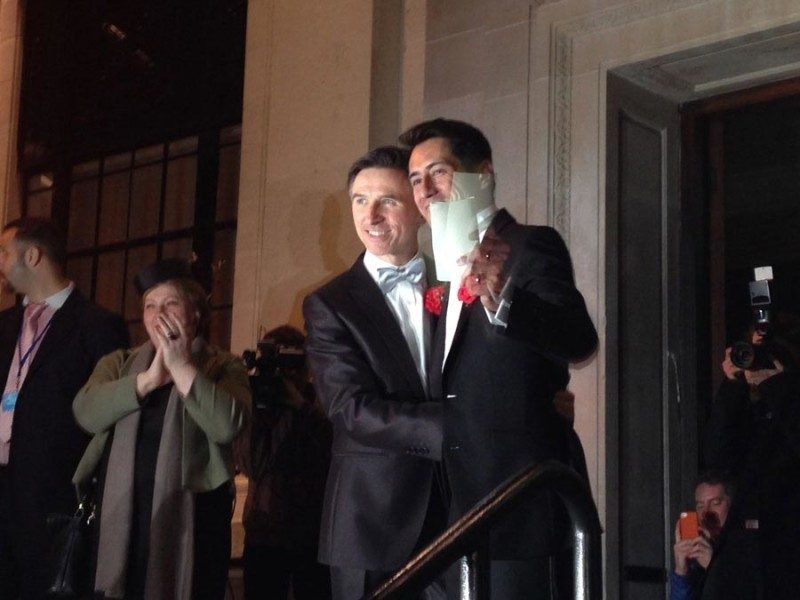The first marriage was made possible through the Marriage Act 1753 – its full title was “An Act for the Better Preventing of Clandestine Marriage”. Then, in 1836, the Marriage Act introduced civil marriage. This change meant that marriage became a civil institution as well as a religious one.
One-hundred and thirteen years later, the 1949 Marriage Act was passed. This Act, amongst other things, said that a “marriage may be solemnized at any time between the hours of eight in the forenoon and six in the afternoon.” It allowed for marriages between men and women over the age of 16.
But 55 years had to pass until the Civil Partnership Act was introduced in 2004. It took a relatively long time for this to happen within contemporary society.
Margot Jones, MP, said: “I do recall you know in the 80s and even the 90s, a freezing effect, I would call it, on the lives of gay people and other minorities because at that time the majority were at liberty to discriminate against us in employment and in every other walk of life practically and speech and some of the outrageous verbal aggression that I recall from those days…”
Finally, the Civil Partnership Act allowed for same-sex relationships to be legally recognized. Seven years (2011) after this Act was passed, the law was changed to allow for same-sex couples to register their civil partnerships on a religious premises, if this was permitted by the custodians of the religious premises.
However, even then, people questioned the need for same-sex marriage. This is illustrated by a statement made by Lord Black of Brentwood, who argued that marriage equality was still very important, despite the great advance that civil partnerships represent.
Fairly quickly after changes to the Civil Partnership Act, in December 2012 the UK Government stated that it was its intention to support same-sex marriage legislation. The government said it would allow religious organizations to perform same-sex marriages if this is what the religious organization wished to do.
The Marriage (Same Sex Couples) Act was introduced into the UK parliament in January 2013, but it took until July 2013 for the bill to pass. It was not until March 13, 2013 that same-sex couples were able to register their intention to marry under the Act for the first time.
The first same-sex marriages in the UK occurred just after the stroke of midnight in London on March 29, 2014. These first same-sex marriages in the UK were scheduled to occur one minute past midnight, sending signs of equality and celebration for all around the world to see.
As Ruth Hunt, Acting Chief Executive of Stonewall UK explains: “Marriage is the final piece in the legislative jigsaw for lesbian, gay and bisexual people. For some of us marriage is an extremely important thing that we have the choice to enter in to.”
Stonewall UK says thank you to all of the politicians that have helped achieve same-sex marriage in the UK.
Image | Tom Morris


